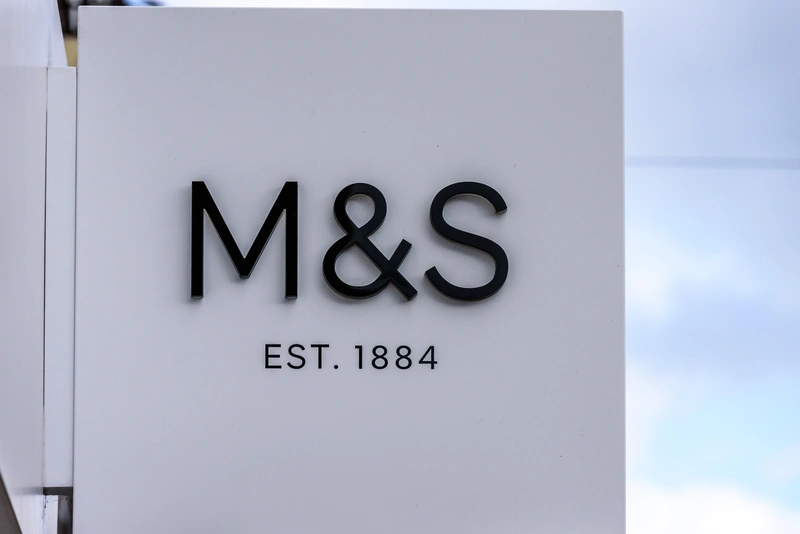- Value-focused trust delivered 3.4% NAV total return
- Marks & Spencer among best-performers
- Car maker Stellantis is a new purchase
Value-oriented investment trust Temple Bar (TMPL) outperformed the FTSE All-Share index in the half ended 30 June 2023 as strong share price performances from the likes of Marks & Spencer (MKS), EasyJet (EZJ) and Standard Chartered (STAN) more than offset disappointing showings from Anglo American (AAL), Pearson (PSON) and TotalEnergies (EPA:TTE).
Temple Bar’s managers Ian Lance and Nick Purves concede it was frustrating that UK-listed shares continued to attract ‘miserly valuations’, but they argue the lessons of stock market history are on the side of shareholders in the trust, which invests in lowly-valued, fundamentally sound businesses.
WHAT IS TEMPLE BAR?
For the uninitiated, Temple Bar is a UK equity income trust specialising in value-style stocks and with a bias towards the FTSE 350.
Managed by Redwheel’s Purves and Lance, the fund looks to buy stocks selling for less than their true worth or ‘intrinsic value’.
By buying at a discount, this strategy builds in a ‘margin of safety’ and in the long run the built-in value should ultimately be recognised by other investors, prompting the share prices of portfolio holdings to rise.
HALF ONE WINNERS
Temple Bar delivered a decent NAV (net asset value) total return of 3.4% in the six months to June, ahead of the 2.6% total return from the All-Share benchmark.
Portfolio winners included Marks & Spencer, the retail stalwart which continues to take market share from competitors in clothing and food.
Lance and Purves argue Marks & Spencer remains ‘modestly valued, even though it still has much in the way of unrealised profit potential’.
Also faring well was British Gas-owner Centrica (CNA), which continues to be valued on a price-to-earnings ratio of less than six times ‘despite having significant excess cash on its balance sheet’.
Over at low-cost carrier EasyJet, the managers see ‘little sign yet that interest rate rises are dampening demand and airline bookings continue to be strong’, while Standard Chartered has been ‘significantly de-risked over the last few years and lending standards are now much improved’.
At the start of the year, First Abu Dhabi Bank considered making a bid for Standard Chartered and whilse nothing came of it, Purves and Lance say the episode served to highlight the strategic value of the company.
A new purchase in the period was Stellantis (STLAP:EPA), the Peugeot-to-Fiat Chrysler brands owner priced on a historic price-to-earnings ratio of less than four times with a dividend yield of around 8%, which has ‘significant net cash on its balance sheet, equating to almost half of its market capitalisation’.
In common with many other trusts, Temple Bar’s discount to NAV widened slightly in the half, from 5.6% to 6.5%, but the board spent £31.1 million in buying back stock in order to manage the discount.
WHAT ARE THE MANAGERS SAYING?
‘Many of the CEOs we talk to express frustration with the low multiples that their businesses attract, and clients often ask what is likely to cause these shares to re-rate,’ commented the managers.
‘The answer of course is that we don’t know for sure, except to say that one doesn’t need the shares to re-rate to get a very attractive investment return. We should remember that a company on a p/e of 6x, which turns 90% of its profit into cash (a typical conversion rate), offers a free cash flow yield of 15% and all that cash can be used to drive shareholder returns either in the form of dividends or share buybacks, whilst holding debt at a constant level.’
Purves and Lance added: ‘Whilst it is somewhat frustrating that UK-listed shares continue to attract such miserly valuations, the attraction for the long-term investor is significant as stock market history has shown that the best predictor of long-term future investment return is starting valuation.’
Time and time again, they point out, ‘those that have invested in highly valued assets have been rewarded with suboptimal returns. Conversely, those that have invested in lowly valued, but fundamentally sound businesses, which did not happen to fit with the prevailing investment narrative at the time of purchase, have enjoyed outsized gains.
‘Whilst we cannot know when the improved fundamentals of many of the Trust’s holdings will be reflected in share prices, the trust’s shareholders should take much comfort from the fact that the lessons of stock market history are very much on their side.’
LEARN ABOUT TEMPLE BAR


